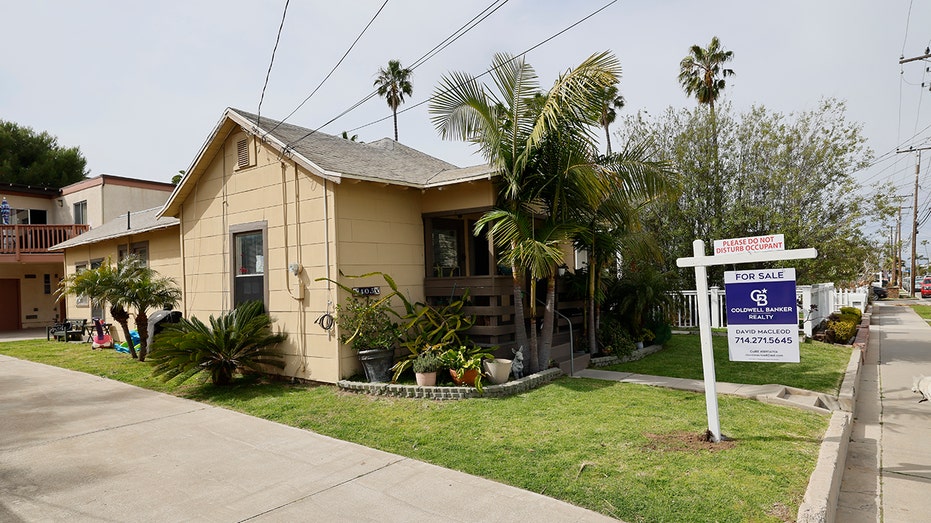The Bahnsen Group founder and CIO David Bahnsen surveys the real estate market as younger homebuyers struggle with the ongoing housing crisis.
American homeowners are sitting on a record $17 trillion in equity, yet the rapid rise in mortgage rates over the past two years has prevented many of them from tapping their equity in order to refinance.
Data published Wednesday by the Mortgage Bankers Association (MBA) shows that demand for refinancing slid 2% last week as mortgage rates remain near a two-decade high. Refinance applications remain 28% higher than they did last year, when interest rates were notably higher.
“Refinance applications decreased for the fourth consecutive week, in line with higher rates,” said Joel Kan, MBA’s vice president and deputy chief economist.
Homeowners held a collective $17 trillion in equity at the end of the first quarter of 2024, a nearly 10% gain from the previous year, according to CoreLogic. That amounts to a gain of about $28,000 per borrower since the start of 2023.
US HOME PRICES JUST HIT ANOTHER ALL-TIME HIGH
Homes in the Issaquah Highlands area of Issaquah, Washington, on Tuesday, April 16, 2024. (Photographer: David Ryder/Bloomberg via Getty Images / Getty Images)
“Home equity is key to mortgage holders who have seen other homeownership costs soar, including insurance, taxes and HOA fees, as a source of financial buffer.” said Selma Hepp, CoreLogic chief economist.
Refinancing allows homeowners to essentially take out a brand-new loan on their property, which is typically used to pay off the original mortgage. It can offer several benefits, including a lower interest rate, a lower monthly payment or a shorter loan life.
Rising home values can give homeowners the opportunity to refinance on more favorable terms. Persistently high mortgage rates, however, have discouraged many homeowners to refinance recently.
MORTGAGE CALCULATOR: SEE HOW MUCH HIGHER RATES COULD COST YOU
“Although home equity gains have been significant in recent years, most borrowers do not have much of an incentive to refinance at current rates,” Kan said.

A home for sale sign in front of a house in Huntington Beach, California. (Allen J. Schaben / Los Angeles Times via Getty Images / Getty Images)
The MBA report showed the average rate on the popular 30-year loan decreased to 7% last week from the previous level of 7.03%. While that is down from a peak of 8% in October, it remains far higher than the pandemic-era lows of just 3%.
Economists predict that mortgage rates will remain elevated for most of 2024 and that they will only begin to fall once the Federal Reserve starts cutting rates. Even then, rates are unlikely to return to the lows seen during the pandemic.
Newsfromrss.com
Higher mortgage rates over the past three years have created a “golden handcuff” effect in the housing market. Sellers who locked in a record-low mortgage rate of 3% or less during the pandemic began have been reluctant to sell, limiting supply further and leaving few options for eager would-be buyers.
Most homeowners say they are nearly twice as willing to sell their home if their mortgage rate is 5% or higher, according to a Zillow survey. Currently, about 80% of mortgage holders have a rate below 5%.


